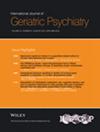The Impact of Clean Water Access on Older Adults' Cognitive Function: A Quasi-Experiment in Rural China
Abstract
Objectives
The long-term effect of clean water access on cognitive function of rural older adults is little known. In this paper, we use the implementation of the rural drinking water program in China as a quasi-experiment to explore the impact of clean water access on cognitive function.
Methods
Using longitudinal data from the 2010 to 2020 China Family Panel Studies (CFPS), cognitive function is measured through word tests, math tests, delayed memory, and number series tests. The staggered difference-in-difference (DID) and event study methods are used to test the causal effect of clean water access on cognitive function among rural older adults (aged 60 and above) in China.
Results
We find that clean water access resulting from this program has a significant positive impact on the cognitive function of rural older adults. Specifically, clean water access increases the scores on the word test, the math test, the delayed memory, and the number series test by 0.104, 0.071, 0.096, and 0.111 standard deviations, respectively. Mechanism analysis shows that clean water access promotes cognitive function through physical health (Including improved self-rated health, increased labor market participation), household income and social participation. Heterogeneity analysis indicates that respondents who are female, older, higher education level and higher income level benefit more from this drinking water program.
Conclusions
Clean water access significantly improves the cognitive function of rural older adults through physical health, household income, and social participation. This study suggests that the establishment of sustainable rural drinking water program by governments can alleviate cognitive impairment in older adults and promote health equity.

 求助内容:
求助内容: 应助结果提醒方式:
应助结果提醒方式:


